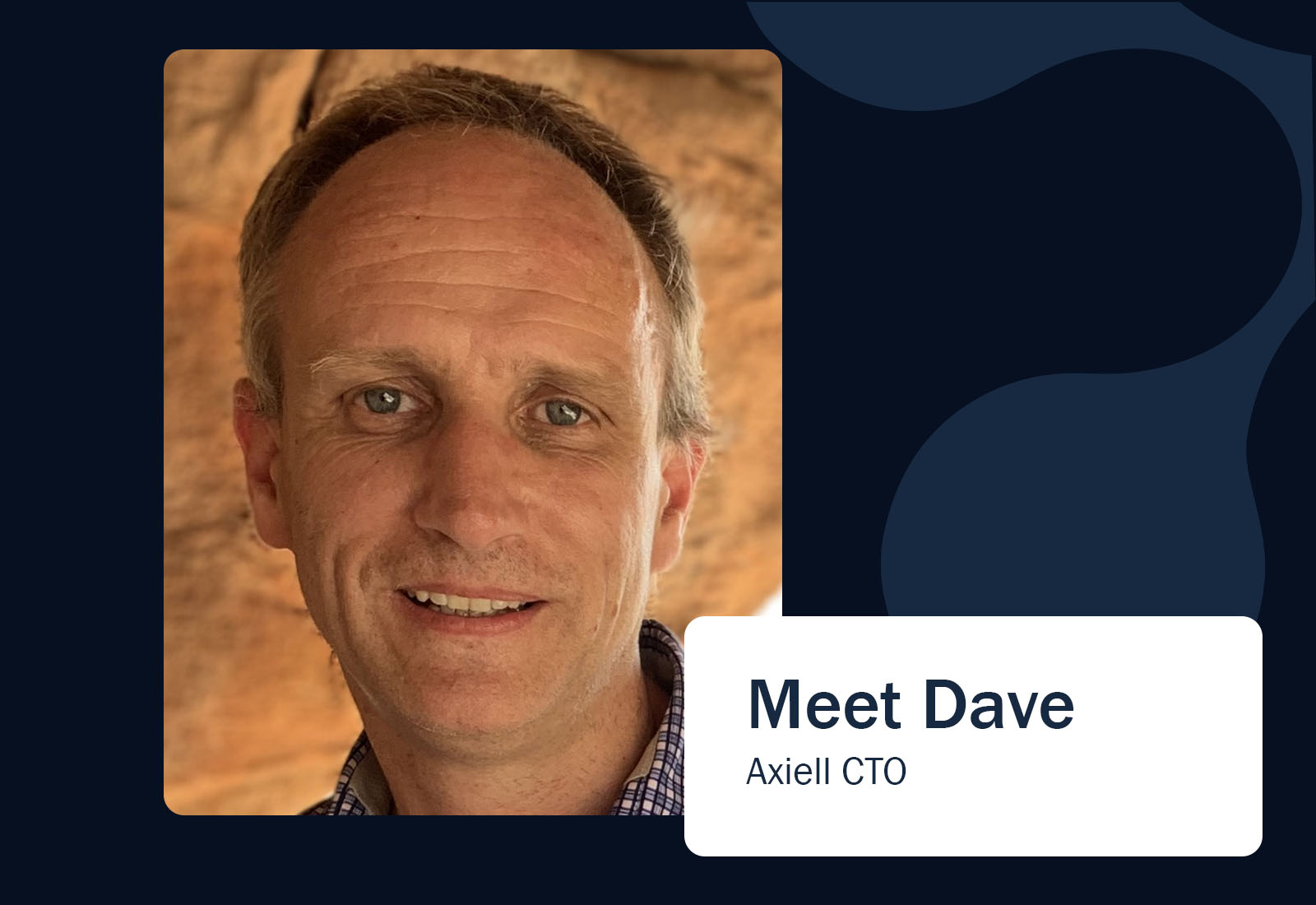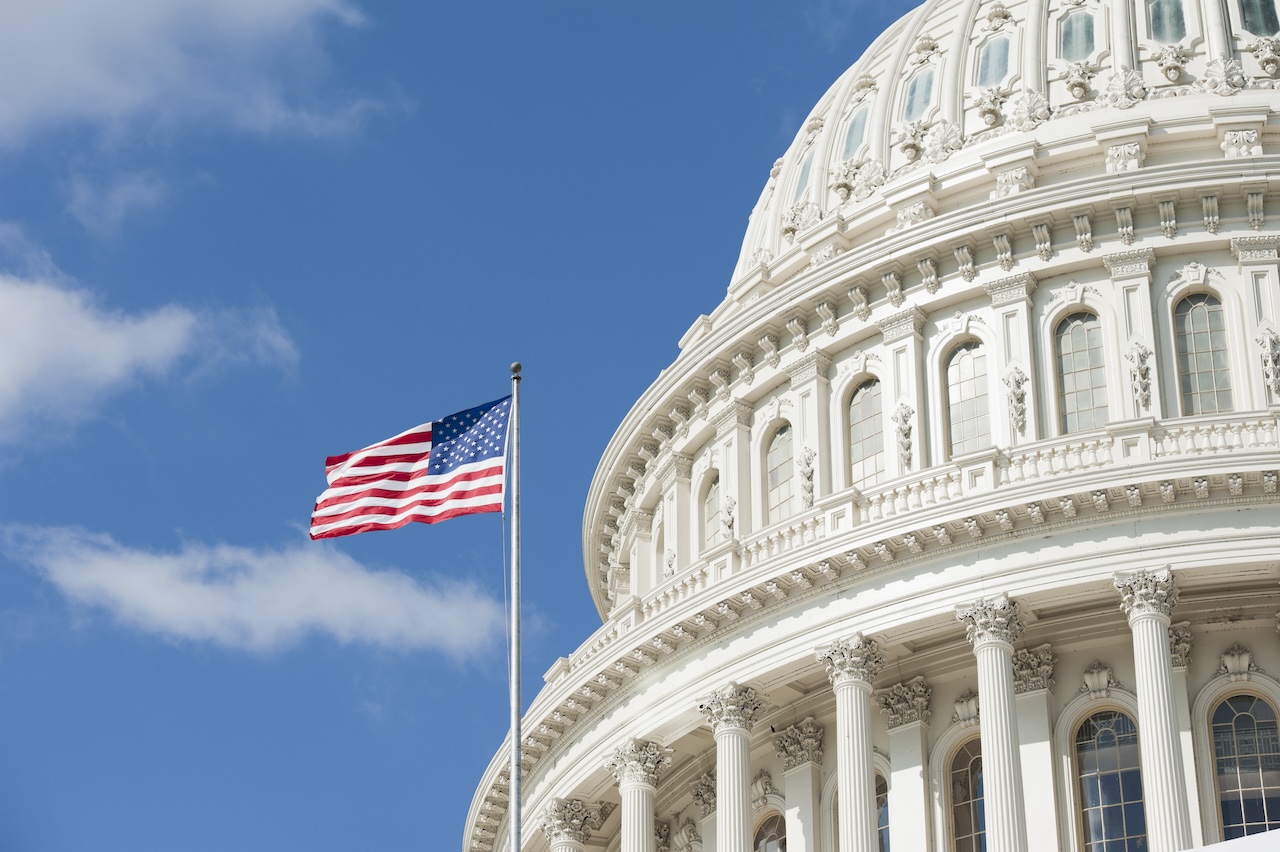In April we welcomed our new CTO, Dave Thomas, to the Axiell team. Dave brings with him a wealth of experience in senior information and technology management roles, combined with a passion for data and its ability to transform and positively shape the future of our society.
Dave has worked in large and information-rich Museums, Archives, Libraries, Research and Private-Sector organisations, including the UK’s Natural History Museum and UK Research Councils.
Now, at Axiell, Dave is responsible for research and development, infrastructure, and spearheading Axiell’s continued investment into cloud solutions and a modern technology platform for the cultural sector.
I sat down (virtually) with Dave to get a better understanding of who he is, and his vision for Axiell.
Tell me how you got your start in musetech?
I began with a degree in Management Science and Biology. Biology had been a passion of mine, but I found I was better at management science. Together these interests shaped my broader mission to learn how society and nature function together, how life works, and what is valuable in life.
After graduation I entered the automotive finance sector which was very cutthroat. I started in the helpdesk answering phones. It was there that I gained an appreciation for the customer – their needs and their expectations from corporate providers.
I stayed working in the private sector for 10 years but eventually my passions started calling me back. I wanted to do something worthwhile, but I also didn’t want to throw my private sector skills and experience away.
I joined UK Research Councils as their IT Strategy and Programme Manager. After four years I become the Chief Information Officer. Across these roles I managed the IT team and the Research and Academic Libraries arm of the organization. Half my time was also directed towards evaluating the UK’s information assets to uncover new ways to generate value from sharing those assets and create deeper data connections. Science at the time was becoming more data centric so I helped establish open information policies for UK Research to strengthen the sharing and use of information.
In line with my passion for biology, in this role I was working on data projects that interpreted global trends in nature. I was bringing together atmospheric and oceanographic research. We were looking at UK data and how we compared to worldwide levels of climate change. This kind of work was a balance of my passions and my skills.
When the job at the Natural History Museum turned up, it was the natural next step for me. I spent 7 amazing years there working across the institution and research library focusing on things like customer engagement and transforming collections data.
I then embarked on 3 years of freelance consultation to work on other institutions’ data before joining Axiell.
And what drew you to Axiell?
I became deeply familiar with Axiell while working at the Natural History Museum. The company is a leading organization made up of passionate and inspiring people. Axiell has the unique task of helping a sector that doesn’t have a lot of money, the goal being to bring collections and library assets to the fore in society.
Axiell can do this at scale for a wide range of institutions because of our large customer base, exceptional staff, and regional offices. It’s a mission that means a lot to me.
At our customer institutions, the value of the knowledge in their people and objects is increasingly critical in this ever-changing digital world. Axiell strives to deliver products that advance the work of these institutions in a rapidly digital-first world. I’m glad to contribute my time and experience to this endeavor.
I also appreciate that Axiell is an international company. I was brought up abroad in Papua New Guinea, I was born in Pakistan, I lived in Botswana and Egypt. As a citizen of the world, I always promised myself I would do international work. To be able to work with an international mindset in a sector that I understand and treasure is a great opportunity for me.
What do you think is driving musetech forward at the moment?
The word “experience” comes to mind. Museums, libraries and archives can no longer focus on each individual visitor experience, but rather must leverage these experiences in a timeline of events that build enduring relationships with their customers and participants. They must expand patronage and deepen their social impact. It’s a tall order.
The question today is how do you engage with a greater number of people and acquire new visitors? And, once acquired, how do you activate them? How do you get them to engage more deeply?
David Attenborough has a saying: “No one will protect what they don’t care about; and no one will care about what they have never experienced.” The modern institution must expand the methods through which members of the public can experience their assets and programming, to also expand the circle of care and engagement around those assets.
Digital channels have transformed this process.
Part of my 3 years as a freelancing consultant involved researching the GLAM sector to understand how to expand reach and impact in our communities. Museums and libraries are in danger of stagnating as physical repositories of information, rather than enforcing their role as social champions of culture, engagement, and inspiration.
Museums are naturally the custodians and gatekeepers of knowledge in the physical world. But they are realizing that controlling assets is no longer as important as controlling access.
Likewise, some people have a very traditional view of libraries – that they are just information gateways – but libraries are some of the most creative, socially responsive, and innovative places in our communities. Libraries act as regional social hubs – providing services far beyond the information in their books.
To offer all this ancillary value relies on a better digital experience. Digital is the channel through which museums and libraries create access to knowledge, engagement, and the chance to experience.
The value of these institutions is more than the assets they house. It is about social cohesion, it’s about lives changed – how many people you’ve inspired to learn and go on to live a more educated life.
What would you like to see Axiell achieve in the next few years?
I often talk about confidence and patience. Axiell is in a great position as a leader in the market, but I would like to see us offer easier ways for our customers to migrate to the strongest solutions in the market so we can build even greater economies of scale for us customers.
The more we can unify our customers on common sets of products that are leading edge will transform what we can offer.
Moreover, I haven’t come across any industry where digital is not front and center. That’s what’s going to drive us forward. I would like to build awareness that we’re creating communities and bringing customers together on progressive technology that meets the needs of today and anticipates the evolving needs for the future.
And we can create even more progressive solutions for our customers by researching and adopting innovative technologies such as AI, trust systems like Blockchain, or digitisation tech.
Recently in my freelancing years I’ve been doing some work with the Collections Trust and the Open Data Institute about linked open data and using AI to improve the quality of metadata. What’s become clear form this work is that sharing data is going to become more and more important.
So as part of my freelancing, I led a collaboration of national and local museums to find ways to bring collections and reach audiences together. Digital offers new immersive ways to engage audiences, but more crucially, transformative ways to augment metadata, generate content, and connect material to create localised and personalised stories about multi-institute collections.
Technology like image recognition and generative AI sound very techy but they really aren’t. They’re the key to unlocking new ways of leveraging the strong data resources that our customers already have.
Now in my role at Axiell I’d like to look to integrate this technology into our offerings. We’re in the early stages of this right now and looking for a partner institution to do a proof of concept but I’m invested in moving this forward.
What can Axiell improve on?
We’ve built strong teams of people and made great partnerships with leading software providers around the world. How can we talk more and share more across our staff and customers? We have a diverse tapestry of customers and partners that all have incredible knowledge to offer. This is such an added value to Axiell that can be further leveraged, especially as we are regionally dispersed. We need to act virtually and be bigger than the sum of our parts.
In this way, the goals for Axiell are much the same as the goals for our customers; to create deeper connections, build engaged communities, and strengthen our reach and impact through digital.
Thank you, Dave, for taking the time to speak to me, and welcome to the Axiell team! You can catch Dave at one of our upcoming user conferences, either in Europe or North America.




